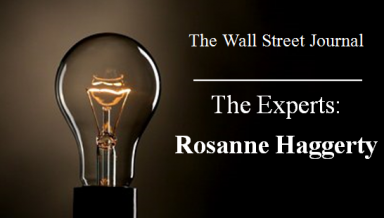
This piece is part of a Wall Street Journal series in which an exclusive group of industry and thought leaders engage in in-depth online discussions of topics raised in this month’s WSJ Small Business Report and all future Reports.
What do you think are the three most important traits that successful entrepreneurs have?
Rosanne:
Successful entrepreneurs reflect the world they live in, and that world has changed dramatically in the past 10 years. In the past, all you needed was a good idea and a working knowledge of your field or industry. Today, there’s virtually no such thing as a single-industry innovation. New entrepreneurs have to be fluent in a variety of fields, and more specifically, they need to be able to see the points of overlap clearly and move among them seamlessly. The places where traditional fields and sectors interface are now the key leverage points for any kind of large-scale change.
This inherently involves a certain amount of risk and failure. Today’s entrepreneurs are redrawing the boundaries and rewriting the rules, and no one does that perfectly on the first try. We’ve got to encourage a higher tolerance for risk taking and the audacity to contradict conventional wisdom and try something completely new. You can learn a lot from failure—it’s the single common factor in most breakthrough innovations—but if we don’t encourage people to take major risks because we’re too afraid they might fail, then we’re stuck in a game of inches when we could be moving miles.
These elements have been the key factors in our success working with communities to end homelessness. We’ve leveraged social media, smartphone technology, public health strategies, big data and GE-style process improvement techniques to help communities get the job done. Ten years ago, nobody in human services thought any of those things had much to do with expanding permanent housing options, and to be sure, we had to invest in our own learning and growth to figure them out. Still, today, I can’t imagine our work without them. Many iterations later, these tools and techniques have helped the communities we work with to house nearly 60,000 chronically homeless Americans in record time.
How do you think entrepreneurs can best maintain a work-life balance?
Rosanne:
Have passions – hiking is one of mine – that excite you as much as your work. And marry people who are more balanced than you are.
What personality trait is the biggest warning sign that somebody isn’t cut out to be an entrepreneur?
Rosanne:
Rigidity. Entrepreneurship requires a passion for a goal coupled with an openness to discovering the best way of reaching it. The risk averse–those who are easily frustrated by a change in plan or circumstances, those who keep new information at bay—should probably find another career path.


